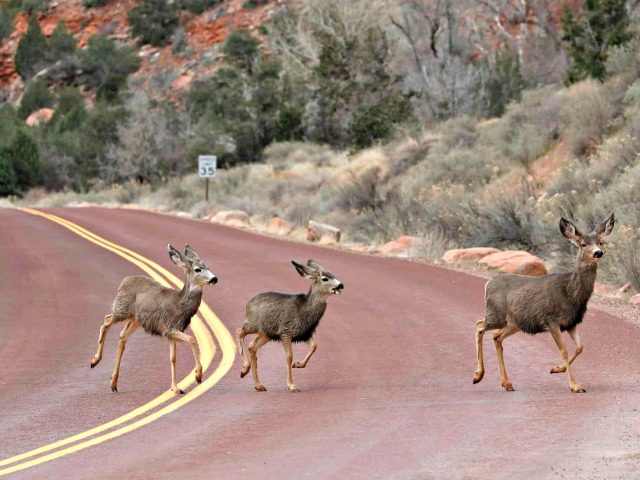California Governor Gavin Newsom has signed legislation that creates a pilot program to set up a system for preventing and tracking wildlife killed in collisions with automobiles, including allowing the animals to be harvested for human consumption.
Senate Bill 395, or the Wildlife Safety Act, which became law earlier this month, states, in part:
It is the intent of this act to make available to Californians tens of thousands of pounds of a healthy, wild, big game food source that currently is wasted each year following wildlife-vehicle collisions. Additionally, it is the intent of this act to ease and improve the reporting of where these collisions occur in order to generate the necessary information to develop appropriate prevention strategies, such as wildlife crossings.
Each year it is estimated that over 20,000 deer alone are hit by motor vehicles on California’s roadways. This potentially translates into hundreds of thousands of pounds of healthy meat that could be used to feed those in need.
The Sacramento Bee reported that California is not the only state to use the road kill to table model:
Previously, it was against the law for anyone but state and local agencies to remove an animal carcass from the road. California now joins approximately half the country in allowing drivers to harvest roadkill.
Deer account for approximately 90 percent of all wildlife collisions in California, according to research from UC Davis, while elk and pig account for less than 1 percent each.
Eater San Francisco reported:
While drivers are welcome to cook roadkill themselves — experts recommend checking for glass and debris as well as cooking the meat at high temperatures — they won’t be able to share their ‘salvages’ with some California food banks just yet. A representative for the SF-Marin Food Bank tells Eater SF that the food bank only accepts protein from facilities with a USDA inspector on-site and with USDA seals on their packaging, for food safety purposes.
“And whether or not chefs choose to incorporate ‘salvage’ dishes on their menus remains to be seen,” the website reported.
The Sacramento Bee reported that the law sunsets on Jan. 1, 2029.
Follow Penny Starr on Twitter

COMMENTS
Please let us know if you're having issues with commenting.